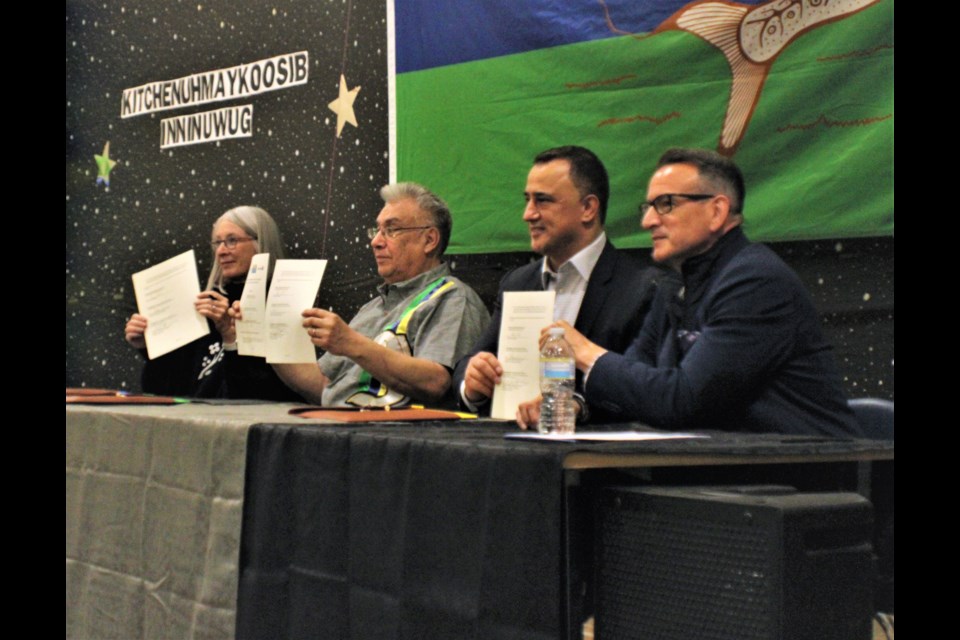KITCHENUHMAYKOOSIB INNINUWUG FIRST NATION — A new tri-lateral agreement giving Kitchenuhmaykoosib Inninuwug First Nation jurisdiction over its child welfare and family law is an example of reconciliation between Indigenous communities and government, says the federal Indigenous services minister.
Provincial and federal ministers travelled to the community last week to celebrate the signing of the Kitchenuhmaykoosib Inninuwug Dibenjikewin Onaakonikewin — which translates to Kitchenuhmaykoosib Inninuwug Family Law. The law allows the community to assert its jurisdiction over its own child welfare and family services.
In a speech, Indigenous Services Canada Minister Patty Hajdu speech reflects on the significance of acknowledging Canada’s role in the treatment of Indigenous people and the importance of reconciling the continuing discriminating and racist practices within Canada’s child and family service system.
“There is a turning point,” said Hajdu, “but it has come with an immense amount of pain and struggle for many generations of people who have called this place home.”
The federal government will provide $93.8 million over four years to support K.I.’s service delivery model. The federal government said the province is still in negotiations for the funding agreement.
Hajdu acknowledged that while Prime Minister Justin Trudeau put “reconciliation at the core” of his political platform, “it has not been perfect.”
“I’ll be the first to tell you as a minister. Over the last seven and a half years, the journey has not been perfect. There have been many ups and downs. There have been many hard times," she said.
"Because when a relationship, like the one Canada has with Indigenous people, is so fractured, indeed one Elder has said “an abusive relationship”, of course, it takes time to heal. But when we tangibly put in place the laws like the one today, that will be combined with equity and funding and true partnerships like with provinces like Ontario, that’s when the healing begins.”
Michael Parsa, the province's minister of children, community and social services, made his first visit to the far north and said that the provincial part of the funding is being finalized.
“It’s a matter of partnership. It’s making sure that we are going to listen and do our part. It’s about making sure that no child, youth, or family is forgotten in the entire province,” said Parsa.
Kiiwetinoong NDP MPP Sol Mamakwa said the importance of K.I.’s family law ensures that children are displaced from their community where their cultural identity, language, education, and bonds will not be lost. But he also acknowledges that it will also take time.
"This a huge undertaking with this ceremony because what KI is doing is stepping away from colonial policies of the federal government and the provincial government,” he said.
“It’s going to bring back hope. It’s going to bring back some wellness. It’s going to bring back life to the community, but it’s going to take some time.”
